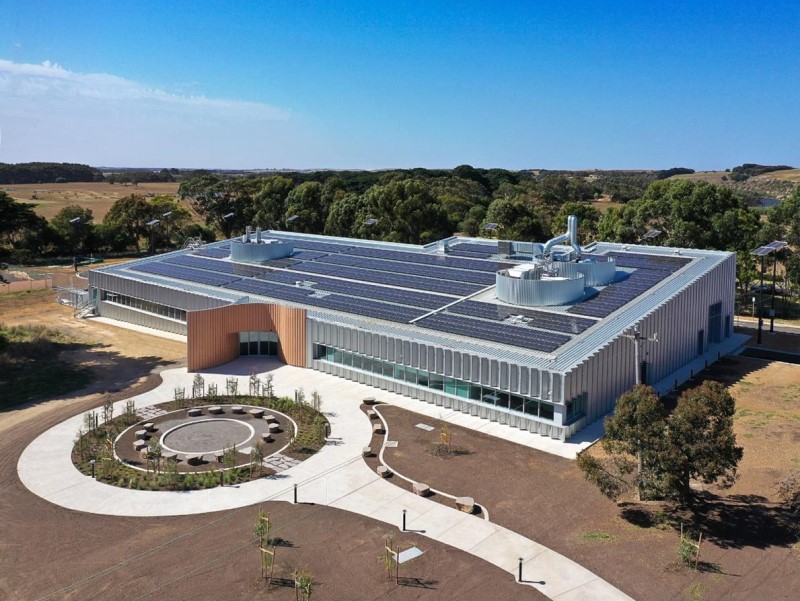Deakin University has opened Australia’s first dedicated hydrogen fuel cell research and development centre, giving researchers and industry access to prototyping and fabrication infrastructure.
Opened on Tuesday, the Hycel Technology Hub is based at the university’s Warrnambool campus in Southeast Victoria and features a first-of-its kind testing station for hydrogen fuel cells with a power output of up to 6kW.
The facility was made possible with a $9 million contribution from the federal Education department and $9 million from the Victorian Higher Education State Investment Fund. The facility is valued at more than $20 million.

Deakin University expects the hub will facilitate fuel cell technology research for potential use in “land vehicles, aviation and marine applications, as well as ground-based uses such as generators”.
The technology converts hydrogen into electricity, without producing carbon emissions.
Construction of the 2,200 square metre hydrogen fuel cell research, prototyping and fabrication facility initially began in mid-2022 and wrapped up earlier this year. The research facility is also located within a Victorian Renewable Energy Zone.
Aside from the fuel cell testing station, Hycel features a product engineering development laboratory, three dedicated laboratory spaces, space for industry to co-locate, and other associated offices.
It also includes plumbed-in low pressure and high pressure supplies of hydrogen for use in specialised lab equipment.
Hycel director Professor Tiffany Walsh said “Hycel brings a hands-on approach to real-world hydrogen usage”.
“At Hycel, industry partners can leverage these unique spaces and equipment to maximise their competitiveness and create new global market opportunities,” Professor Walsh said.
“And all within the broader context of hydrogen adoption encompassing safety, regulatory, societal and workforce development considerations.”
According to a draft of the federal government’s Transport sector decarbonisation plan, hydrogen fuel cell technologies are expected to play a role in the decarbonisation of long-haul trucks and regional aviation.
But it is still unclear whether hydrogen fuel cells will stand up as a “competitive long-term light vehicle decarbonisation solution” due to their “relatively low energy efficiency and the need to establish new refuelling infrastructure”.
The Commonwealth’s decarbonisation plans for six hard to abate sectors are still under development. The Victorian government is also due to release a Renewable Gas Directions Paper later this year, which will include support for the renewable hydrogen sector.
Victoria’s Minister for Energy and Resources Lily D’Ambrosio said Hycel “will be critical to accelerating the development of a Victorian renewable hydrogen sector, as we seize the regional jobs and economic opportunities this emerging technology presents”.
Do you know more? Contact James Riley via Email.

